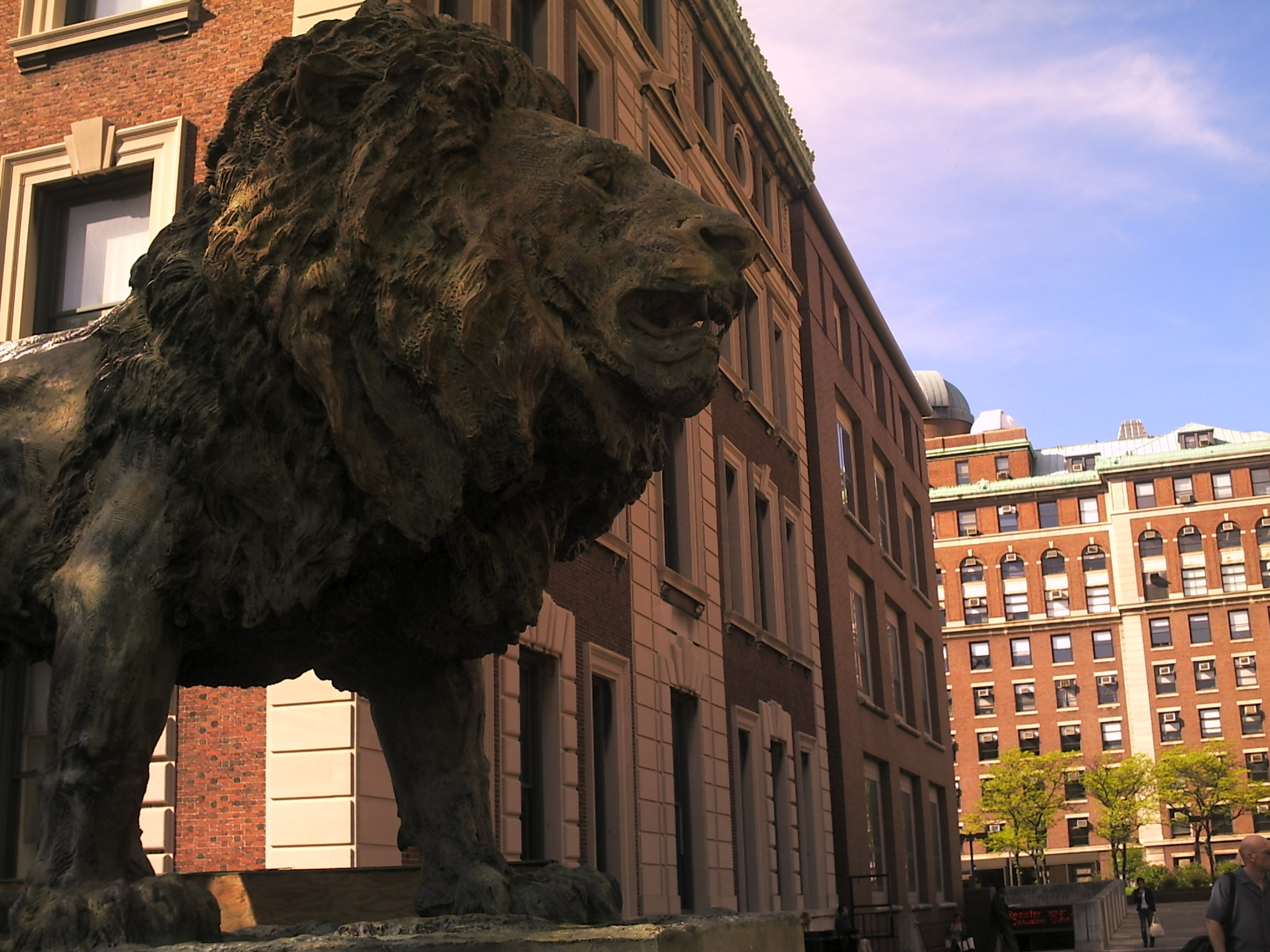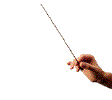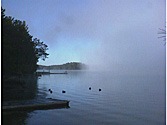 |
MUSIC
COMPOSITIONS By Composer MARILYNN STARK
|
|
|
|
ECHOES ON MUSIC By Marilynn Stark The
beauty of a classical music piece is perhaps beyond
description in simple words. How can one in words alone ever say
what a classical music work says? How can one in sheer words inspire the same level of
emotion and any resolution of emotion which arise out of the sound
once heard and then once
again echoed further on in the variance
of passage in that classical piece? Such poetic passage through
some majestic structure gently, perhaps, holding, and now superimposed
by dint of memory's moving moment upon the This is
the ultimate in musical art, the classical lore which has bravely come
down through the ages across decades and centuries to us. From
times before does the classical music style arrive, from places and
people who lived in different styles and in various cultures with
their own individualized ways of governing and living together as
people; yet these originators of classical music were people alive on the same
Earth with the same
fundamental values and appreciation of life and of freedom in life to
realize their own -- to be given the opportunity to achieve
self-actuation. In the process of this strife to know the self
and to contribute to the greater society accordingly, however
different that society or of whatever size, there must be a success
and thus a joy at the selfsame feature of life for which we in today's
time also desire to know: the truth. Indeed, truth is the
supreme guide, the greatest, universal ingredient of all thinking, of
all contemplation and of all art and science which express that truth
in a disposition of basic goodness. The goodness is for the
betterment of all and the preservation thereby of all of mankind.
In the time of the eighteenth century, for instance, mankind had its own
moments to ponder, its own course to plot in its own individualized
way. Yet, the same fundamental challenges and resistances to
truth presented. The people, the leaders and the rulers were
occupied with questions of survival and values for the happiness of
the people and the security of their respective communities and
nations. When once the
mind and heart are embraced and the airy surround becomes embossed
with such grace and dignity as the classical music style might offer,
there is
no argumentative cacophony to be pondered, or so it seems.
If stormy venue does present, how magnificent the resolving
theme in answer; it is as if there had been no more purpose in the fray than
to
This is the echo of grand time on its own grand scale, balanced so mightily yet so carefully so as to seem as delicate as it can be in certain phrases welcome now to these times; forsooth, this echoic phraseology despite its long journey from the unknown of the profound past finds its welcome here and now with a facility to match even the best of its own legato. So that is it, that is time which pales to cavernous echo within its own categorical, heroic search for eternity; indeed, this paling of time itself is the feat of the beauty and message of the classical music intent upon us of this modern era. Indeed, now listen to its play upon our still perceptive ears though many had heard it before we were born--listen to the echo now close in time whilst the timing itself of this piece of art threatens to humble us to our contemporary places no matter the walk. Within the magic of the work of classical music there is a way in which to convey and to say. This soulful, timeless message is what must have been said for all eras and ages together to hear; it is the careful structure of classical music which guides and gives a form in a language style which never died.
If the
truth of this great music language is so, then should words of
analysis take notice of how to speak in the language of music in
classical mode, although never to meet in description its very
worth? As
precise as such even truthful parsing words might be in scientific
right in their due analysis, such words certainly never would be capable of reflecting the same
message and meaning as that to which they might become taxonomic.
Such is the echo in the close of time upon a moment in a single
life of a single day wherein such an archaic classical piece is
formed by the use of refrain in ordered fashion, predetermined as it
was
There is
a definite advantage in numbers in typical apposition of truth to
measurable continua, for then a more careful determination of any
hypothesis can be made. As such numbers accrue and sum up, then
their truest meaning can be unfolded as to their reliability in
feature or as to their predictability in any given and discernable
context of reality. Imagine now being a classical music composer
who has at immediate dispatch a symphony together, a string orchestra,
wherein multitudinous voices of differing instruments may lift
together and fill the surround with sound greater than that which one
instrument,
however eloquent, can make as solo. The call to conversation in
the classical language of music comports a fare which mimics the
talk in life itself. Now a lone voice sounds, and answer is made
by the many whether that be most likely in contrast; now an
inquiry is posed in a single mind, and then the reality gained as to
answer to such inquiry lifts its multitudinous facets like a chorus of
the many, so that an individual's place is thus perceived.
Consider the parlance, then, in the classical music form of the
concerto grosso of the Baroque era which works from fast to slow to
fast most likely, and within that macrostructure of movements, there
will be a ritornello found in the fast movements. As much like an inquiry as a statement for the eliciting of answer,
this refrain will come from the annals of the tutti, the orchestra of stringed instruments
which works in dynamic keel with a continuo.
From whence the challenge to melody's motive? As it sounds as if
bravely from the voices of many in unison, that bold refrain lives to echo once again after the soloist recalls a point of
difference or proffers in return an elaboration in accord--had
anything else been said, or does this recurring missive of notes the
same say more after the time before repartee had been given by its
contiguous and episodic conferee? From thence the challenge to
unilateral melody is met and so boldly stated. From thence is
phasic exposition derived by an ear learned unto the fine structure of
the ancient music beloved and known as classical. Nor can any
one of the listeners held tightly within this parley imagine easily
being the soloist, capable of being the protagonist of time's tempered
tempo, the persona of weighty rejoinder in eloquence equivalent to the
negotiating party. Nor one of those listeners might be in
prospective dialogue and as according to those rules of decorum and
order lest that listener might also write the scores if play them --
for this is a composer -- one who speaks in the wondrous language of
music that others may give the glad accord of empathic accompaniment to that
composer's deepest heart. So does the music speak like people in
life: now one, now the many. In good accord and in contrast do
all so gain their say as to truth and its concordant demeanor. So it
is that classical music does speak the most by saying the least
except by contrast: contrast in numbers of instruments whereby the
many converse with the soli,
Imagine
the cultural context of those days in history when the great classical
music composers had lived and produced the eternal works of musical
art which we today enjoy. This music plays in good accord the
soul of time, which soul of time is timelessness, upon the strings of
the instrument of truth, and whose universality of truth cannot be
measured in its dexterity. For the skills of universal truth as
expressed in art are beyond measure even in their own time of birth;
yet, if the test of the truth of that art is then passed so far as
into at least the next span of time, then begins perhaps such ageless
passage to posterity's trust as that which had made the classical
music art of today ever flourish. No small feat is this, and how
it does sing the ages accordingly as if positioned all along by sheer
brilliance for an ultimate sound. Lo, can you not hear the
bellow of mankind's misery reduced to a sigh, when the classical taunt
of eloquent musical refurbishment upon this current day presents; when
once some messenger from on high reaches past the centuries and gives
good tiding unto the way of truth for all in all times, at all times,
never swaying to persuasion that time makes any difference to the
salvation of us all but through truth? For if you can only
listen and find your heart and perception's soul in this testimony to
God's power to express His love and compassion through man in the
language of classical music now born, then no problem for you in your
day should render you short of that vision thus lent you by the
universally uplifting classical music lesson in truth and its
concomitant reality; and so is this enlightenment also true in your
own individual vision for the peace and preservation of mankind, and
which enlightenment can further accrue to the light of guidance for
those leaders on the world stage who also see as according to the
non-verbal For this is my prayer for you, the people, who might hear what I have to say as a composer of classical music. Marilynn Stark
Marilynn Stark © 2003 All Rights Reserved xHOME x CONTEMPLATIONS x REFLECTIONS x xREVERBERATIONS x WORKS x REVELATIONS x xREMEMBRANCES x DERIVATIONS x ELUCIDATIONS x xEXPANSIONS x ECHOES x DEVOTIONS x GLOSSARY x SEARCH x FAQ x x LINKS x
©2000-2012 By Marilynn Stark All Rights Reserved This page was last edited on 02/24/2012 |
|

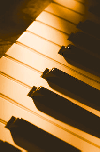
 surrendered mind-- there
comes a wave of realization that all phrases said just before are
qualified and understood beyond what had been immediately and
spontaneously conferred in the saying. This meaning, this
ulterior sound with message so clear, came as if from other parts and
needs to be said again and heard again for its profound statement; yet no words in simple language can ever strive to say what was just
heard. It remains only to hear this piece once more, so that its
offer of requiting can be more fully understood and understood for
all time. Where else can this truth ever be found in quite
this way while at the same time lending such a pleasing ideation in
sonorous feat?
surrendered mind-- there
comes a wave of realization that all phrases said just before are
qualified and understood beyond what had been immediately and
spontaneously conferred in the saying. This meaning, this
ulterior sound with message so clear, came as if from other parts and
needs to be said again and heard again for its profound statement; yet no words in simple language can ever strive to say what was just
heard. It remains only to hear this piece once more, so that its
offer of requiting can be more fully understood and understood for
all time. Where else can this truth ever be found in quite
this way while at the same time lending such a pleasing ideation in
sonorous feat?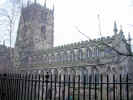 There were religiously born values. There were threats and there
were victories of the power of the wise and good among them to conquer whether locally or on the international stage. All of
this comes to us through the classical music message of former
time. Indeed, so valued and timeless it is that we might want to call it even
ancient.
There were religiously born values. There were threats and there
were victories of the power of the wise and good among them to conquer whether locally or on the international stage. All of
this comes to us through the classical music message of former
time. Indeed, so valued and timeless it is that we might want to call it even
ancient.  establish its caring, most compassionate solution. Hear tell
of the roots of this most eloquently contained music whose
constraints upon fragmented emotions must only enlighten one who truly
hears its majestic awareness. In fact, it is said that the classical bearing
finds its beginnings in an educated European setting. How
removed and how remote in time and in personae -- a visage of those
gifted in wealth and finery comes to mind. Such luxurious
yesteryear's imagery must haunt and taunt us, for we have never
found a place worthy of listening to a message from other parts and
places of yore. Instead, do we tend to be mindful of life's lackluster
practicum wherein we abide most certainly? No. No, we
should not demur and defer to the commonplace aspects of living when
there is time to thrive and thus to pursue the universal plane proffered
by this beauteous, ancient musical art form called 'classical' music;
what comes to mind is a polarized view older than the Greek
sun wherein abides a dichotomy -- a dichotomy between elevated, heroic
classicists opposing hedonists and romantic ilk. This rift in
values between classicist and romanticist finds its source well before our
time and could be centuries beyond the ken of any but an astute
historian's count. Notwithstanding such a value-based difference
derived from moral concept, can a people not
hear that message of gossamery birth now echoing into and past
anarchy's plaints past some field of metallic tragic tales? Is this
not a message refined for its place of birth in the remote past as if
its age had belied its presence when once it was understood in the
here-and-now? How can those sonorous notes of antiquity be paced in the air
for auditory access now, sound as instantaneously as they might, and
echo some heart from former land? Had these notes from on high
not famed the place in century's
span together, yet still they say what is relevant of mind today? Is
this some feat of time whose tempo marches through mankind's trying travail,
through mankind's selfsame journey of trials and traverses, held by
some wielder of fate to be delivered
by a mind set in the heart for failure's bother whilst set ever yet to
the eye's idea for winning actual glory and joyous song? Just what is this
vintage message whose voice has never died? And what made it
live on for this moment outpaced by any single clock, for this day for
us to hear and to ponder past misery? What vision's eye must
prevail across this glorious history's chamber where resound the
ages as if unawares of some time in its rumor of inevitability in
passage? As such vision uplifts and inspires a voice most discriminating unto
establish its caring, most compassionate solution. Hear tell
of the roots of this most eloquently contained music whose
constraints upon fragmented emotions must only enlighten one who truly
hears its majestic awareness. In fact, it is said that the classical bearing
finds its beginnings in an educated European setting. How
removed and how remote in time and in personae -- a visage of those
gifted in wealth and finery comes to mind. Such luxurious
yesteryear's imagery must haunt and taunt us, for we have never
found a place worthy of listening to a message from other parts and
places of yore. Instead, do we tend to be mindful of life's lackluster
practicum wherein we abide most certainly? No. No, we
should not demur and defer to the commonplace aspects of living when
there is time to thrive and thus to pursue the universal plane proffered
by this beauteous, ancient musical art form called 'classical' music;
what comes to mind is a polarized view older than the Greek
sun wherein abides a dichotomy -- a dichotomy between elevated, heroic
classicists opposing hedonists and romantic ilk. This rift in
values between classicist and romanticist finds its source well before our
time and could be centuries beyond the ken of any but an astute
historian's count. Notwithstanding such a value-based difference
derived from moral concept, can a people not
hear that message of gossamery birth now echoing into and past
anarchy's plaints past some field of metallic tragic tales? Is this
not a message refined for its place of birth in the remote past as if
its age had belied its presence when once it was understood in the
here-and-now? How can those sonorous notes of antiquity be paced in the air
for auditory access now, sound as instantaneously as they might, and
echo some heart from former land? Had these notes from on high
not famed the place in century's
span together, yet still they say what is relevant of mind today? Is
this some feat of time whose tempo marches through mankind's trying travail,
through mankind's selfsame journey of trials and traverses, held by
some wielder of fate to be delivered
by a mind set in the heart for failure's bother whilst set ever yet to
the eye's idea for winning actual glory and joyous song? Just what is this
vintage message whose voice has never died? And what made it
live on for this moment outpaced by any single clock, for this day for
us to hear and to ponder past misery? What vision's eye must
prevail across this glorious history's chamber where resound the
ages as if unawares of some time in its rumor of inevitability in
passage? As such vision uplifts and inspires a voice most discriminating unto
 today's
contemporaneous complex of people and life, does it not see through us as evolved and progressed as we are? No rumor as it might
be, time is thus befriended and true to heart's ageless compassion no
matter how well-learned the hearer of the classical music say since
classical music speaks to all of every birth -- unequivocally and
truthfully.
today's
contemporaneous complex of people and life, does it not see through us as evolved and progressed as we are? No rumor as it might
be, time is thus befriended and true to heart's ageless compassion no
matter how well-learned the hearer of the classical music say since
classical music speaks to all of every birth -- unequivocally and
truthfully.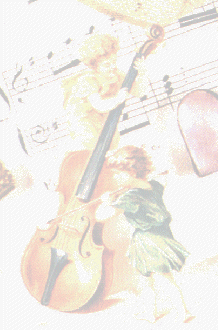 from its very conception in the mind of an exacting composer though
from days of yore.
This echoic rondo offers answerability in a seemingly endless
rendition of opining opulence in harmonious appositional accord.
The rondo relies upon the ear for a re-assortment of what is heard and restated after some equally decorous rejoinder qualifies
the original elegance. This echo of former section instates the
memory of melodious, poetic air upon the theme larger to the piece.
These resounding notes of the rondo in careful interpolation of
contrasting partitions cause a meaning to be found which is deeper
than the simple melody first proffered and then performed again and
then again after further comment and elaborative embellishment upon
the founding sound, its first tendering. Indeed, is that sound mellifluous and
complete at once unto itself that it can be affixed then again to a
neighbor and understood more profoundly? Remarkably, indeed, need a devotee ever even
consciously separate this query since, lost in the reveling, will that devotee blindly
ask for more? By virtue of the essence of the classical music
dynamic will that quest to hear more by the very hold of its explicit
momentum be ever met. Through use of the rondo structure, a
ritornello, or refrain, will recur faithfully in between contrasting
surges of music textured for its horizontal interposition and
often also its instrument comprise. The whole of the instruments, the
tutti, will echo the refrain to be challenged for dramatic antagonist
by the soli, the lone instrumental passages. What honor is paid
to this recurring statement by whatever name it is given.
However, only
that honor is heard which is meet in expressivity with its forbearer and, if by
contrasting statement, would so tell it more. Together these
counterparts to one unified message in the rondo principle of musical
expression so typical of the concerto form are overall indescribable
for the contagion of clarion call to truth thus conferred, and,
whatever that truth may be, will it be duly heard.
from its very conception in the mind of an exacting composer though
from days of yore.
This echoic rondo offers answerability in a seemingly endless
rendition of opining opulence in harmonious appositional accord.
The rondo relies upon the ear for a re-assortment of what is heard and restated after some equally decorous rejoinder qualifies
the original elegance. This echo of former section instates the
memory of melodious, poetic air upon the theme larger to the piece.
These resounding notes of the rondo in careful interpolation of
contrasting partitions cause a meaning to be found which is deeper
than the simple melody first proffered and then performed again and
then again after further comment and elaborative embellishment upon
the founding sound, its first tendering. Indeed, is that sound mellifluous and
complete at once unto itself that it can be affixed then again to a
neighbor and understood more profoundly? Remarkably, indeed, need a devotee ever even
consciously separate this query since, lost in the reveling, will that devotee blindly
ask for more? By virtue of the essence of the classical music
dynamic will that quest to hear more by the very hold of its explicit
momentum be ever met. Through use of the rondo structure, a
ritornello, or refrain, will recur faithfully in between contrasting
surges of music textured for its horizontal interposition and
often also its instrument comprise. The whole of the instruments, the
tutti, will echo the refrain to be challenged for dramatic antagonist
by the soli, the lone instrumental passages. What honor is paid
to this recurring statement by whatever name it is given.
However, only
that honor is heard which is meet in expressivity with its forbearer and, if by
contrasting statement, would so tell it more. Together these
counterparts to one unified message in the rondo principle of musical
expression so typical of the concerto form are overall indescribable
for the contagion of clarion call to truth thus conferred, and,
whatever that truth may be, will it be duly heard. contrast by tempo wherein the slow imparts meaning by its opposite
imposition upon the fast movements while seeming alternatively so,
and finally, contrast by the sameness of the continuo and the
sameness of the ritornello. Yet the continuo and the ritornello counter the interpolation of unlike
passage contained thus within the dual hold of alternately repetitive
feature. And this is the place of numbers to gain the presence
of significance and meaning through their passage in the continuum of
time as measured in time's honored tempo of dignified and exacting
music, classical music. The notes of music become traveling numbers of universal import throughout a perceptive music
audience who exist for the capture of universal truth. This
audience, who cannot but hear that truth as it sounds whether it
sounds in the music hall, across speakers, or across centuries of time
for mankind to eternally ponder, will be enlightened. The music
audience so gifted to hear classical music will be enlightened by the same truth
which had once enlightened the composers who had left that truth
etched through the styles of bold compositions on uncharted
papers, yet were these preserved through time. How can a
reasoning person in today's world not clamor to hear this ancient
language of music if all that has been said heretofore is cognized as
real and true? This indifference of some to the majesty
contrast by tempo wherein the slow imparts meaning by its opposite
imposition upon the fast movements while seeming alternatively so,
and finally, contrast by the sameness of the continuo and the
sameness of the ritornello. Yet the continuo and the ritornello counter the interpolation of unlike
passage contained thus within the dual hold of alternately repetitive
feature. And this is the place of numbers to gain the presence
of significance and meaning through their passage in the continuum of
time as measured in time's honored tempo of dignified and exacting
music, classical music. The notes of music become traveling numbers of universal import throughout a perceptive music
audience who exist for the capture of universal truth. This
audience, who cannot but hear that truth as it sounds whether it
sounds in the music hall, across speakers, or across centuries of time
for mankind to eternally ponder, will be enlightened. The music
audience so gifted to hear classical music will be enlightened by the same truth
which had once enlightened the composers who had left that truth
etched through the styles of bold compositions on uncharted
papers, yet were these preserved through time. How can a
reasoning person in today's world not clamor to hear this ancient
language of music if all that has been said heretofore is cognized as
real and true? This indifference of some to the majesty of classical music is a puzzle indeed to aficionados of classical
music in respect to their heights in self-realization.
of classical music is a puzzle indeed to aficionados of classical
music in respect to their heights in self-realization.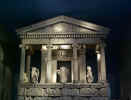 word of unfailing compassion found in the classical music message.
There must have been those composers from various periods of time in
the history of the classical music heritage, which we value so deeply,
who were as profoundly brilliant as the composers who came to be known
chiefly among them, yet never rose to the full prominence their just
due. Still some works survived for us to hear and to study even beyond
any political injustice or favoritism which might have discriminated
unfairly against those certain few, so that a tradition was developed
and handed down to posterity. We can only look back and
imagine that the equally brilliant compositions of the now forgotten
composers who were treated unfairly in their times, were at least
heard in that time native to their lives, and had also a fomenting
effect upon the growth and development of the greater musical say of
their day despite their particular unpopularity. Perhaps their
love for musical perfection and expression sustained them in their own
time of accomplishment, and selfless was their intent to contribute
past failures of recognition but for the sake of truth. For even
among the people where folk music prevails and is handed down across
generations, authorship can be lost to the public domain. But
since the classical music evolved from a more sheltered and smaller
sector historically, from the church and state of the educated few, it
would be most probable that the socio-political support for
music creativity must have been a vital determinant in success and in
recognition for a classical composer. Given this history' s
perspective, there remains to be seen how true to the test of art for
its universality of truth will mankind remain in the contemporaneous
day. In this day of technology it is possible to transcend
political constraint upon musical expression by the tool of electronic
ubiquity. That is to say, advertising across the air and
sophisticated technological advancements as through the Internet with
its information highway and artistic commerce, can work together to
create a highly egalitarian artistic culture of classical music for
all and for all everywhere. In this way the message to be given
through the vehicle of current,
word of unfailing compassion found in the classical music message.
There must have been those composers from various periods of time in
the history of the classical music heritage, which we value so deeply,
who were as profoundly brilliant as the composers who came to be known
chiefly among them, yet never rose to the full prominence their just
due. Still some works survived for us to hear and to study even beyond
any political injustice or favoritism which might have discriminated
unfairly against those certain few, so that a tradition was developed
and handed down to posterity. We can only look back and
imagine that the equally brilliant compositions of the now forgotten
composers who were treated unfairly in their times, were at least
heard in that time native to their lives, and had also a fomenting
effect upon the growth and development of the greater musical say of
their day despite their particular unpopularity. Perhaps their
love for musical perfection and expression sustained them in their own
time of accomplishment, and selfless was their intent to contribute
past failures of recognition but for the sake of truth. For even
among the people where folk music prevails and is handed down across
generations, authorship can be lost to the public domain. But
since the classical music evolved from a more sheltered and smaller
sector historically, from the church and state of the educated few, it
would be most probable that the socio-political support for
music creativity must have been a vital determinant in success and in
recognition for a classical composer. Given this history' s
perspective, there remains to be seen how true to the test of art for
its universality of truth will mankind remain in the contemporaneous
day. In this day of technology it is possible to transcend
political constraint upon musical expression by the tool of electronic
ubiquity. That is to say, advertising across the air and
sophisticated technological advancements as through the Internet with
its information highway and artistic commerce, can work together to
create a highly egalitarian artistic culture of classical music for
all and for all everywhere. In this way the message to be given
through the vehicle of current, 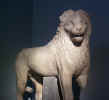 contemporaneously created classical music, may find its test of truth
from the wider people most directly. Then may the wonder of
classical music prevail accordingly through the aegis of a free
enterprise system and a thriving democratic spirit.
contemporaneously created classical music, may find its test of truth
from the wider people most directly. Then may the wonder of
classical music prevail accordingly through the aegis of a free
enterprise system and a thriving democratic spirit. 